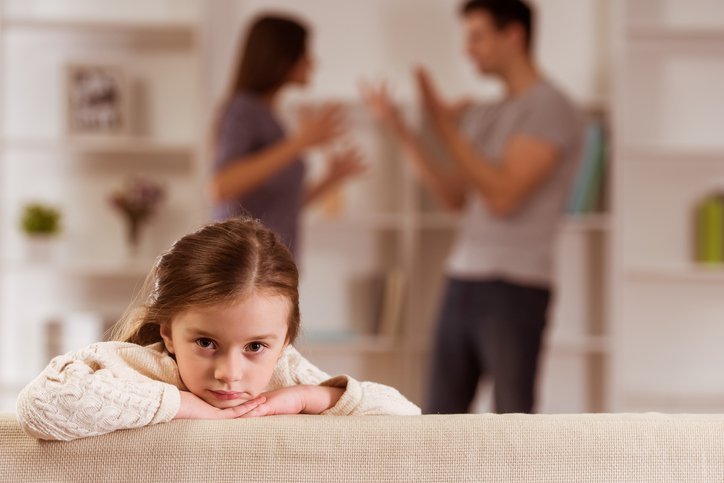Contents:
- Medical Video: Sad Multifandom | In A Broken Home |
- Emotional problem
- Education problem
- Social problem
- Family dynamics problems
Medical Video: Sad Multifandom | In A Broken Home |
Child broken home is children who are the result of household failure or a child who has a family that is not harmonious. The University of New Hampshire Cooperative Extension explains that the effects of a family that is not harmonious in a child's development depend on various factors, including the age of a child when parents divorce, the child's personality, and relationships within the family. Even though toddlers and very young children may not experience too negative developmental effects, children whose parents divorce when they enter school age or even teenagers may experience some problems in their social, emotional, and educational functions.
Emotional problem
After divorce, children from pre-school to the end of adolescence can experience deficits in emotional development. Children of all ages may feel sadness and depression, which is a long-term emotional state (can last up to several years after a parent's divorce), explained psychologist Lori Rappaport.
In addition, some older children may show very little emotional reaction to their parents' separation. Rappaport explained that this was not a good stage of development for children. Some children who show a little emotional response actually harbor their negative feelings. This emotional emphasis can actually make it difficult for parents, teachers, and therapists to help children process their feelings in the right way.
Then, a study by Larson & Larson 1990, showed that suicide rates in children were higher for children broken home compared to children in normal families. No correlation was found between parental death and suicide from a child. However, suicide seems to be triggered by children's refusal by parents.
Education problem
Slowing academic development is another problem in children broken home which is commonly affected by parental divorce. Emotional stress alone can hamper your child's academic progress, but changes in lifestyle and broken family instability can contribute to poor educational outcomes. This poor academic progress can come from a number of factors, including instability in the home environment, inadequate financial resources, and inconsistent routines.
According to a study by the University of Western Australia, women who are not married, widowed and divorced will be more likely to have children with moderate intellectual disabilities compared to those who have complete parents.
Social problem
Divorce affects children's social relations for several things. As a result of divorce, some children give up their anxiety by acting aggressively and engaging in behavior bullying (oppression), both of which are negative and can affect their peers' relationships.
Other children may experience anxiety, which can make it difficult for them to seek positive social interactions and engage in beneficial development activities such as sports. Teenagers broken home may develop a cynical attitude and distrust of relationships, both to their parents and potential partners, explained psychologist Carl Pickhardt, in his article entitled "Parental Divorce and Adolescents" published in Psychology Today.
Family dynamics problems
In pursuit of its essence, divorce not only changes the family structure, but also its dynamics. Even if you and your partner have a divorce peacefully, it only creates two new households that permanently change family interactions and roles. Based on the new life arrangements, your children may need to do some household chores and take on additional roles in the basic functions of the new household.
In addition, in some divorced families, the eldest child will take the role of parents for his younger siblings, because of their parents' work schedules or the inability of parents to always be on their side as before the divorce.
Moreover, children broken home at the age of 18-22 years it is likely twice as big as having a bad relationship with their parents. Most of them will display high emotional stress and behavioral problems, so many of them get psychological help. A study by Zill found that the effects of divorce will remain visible around 12-22 years after separation. Research by Child Psychology Divorce also found that children broken home less obedient to their divorced parents.
READ ALSO:
- 4 Mistakes Often Performed By Divorced Parents
- What You Need to Know About Depression in Pregnant Women
- Differences in the Role of Father and Mother for Children












